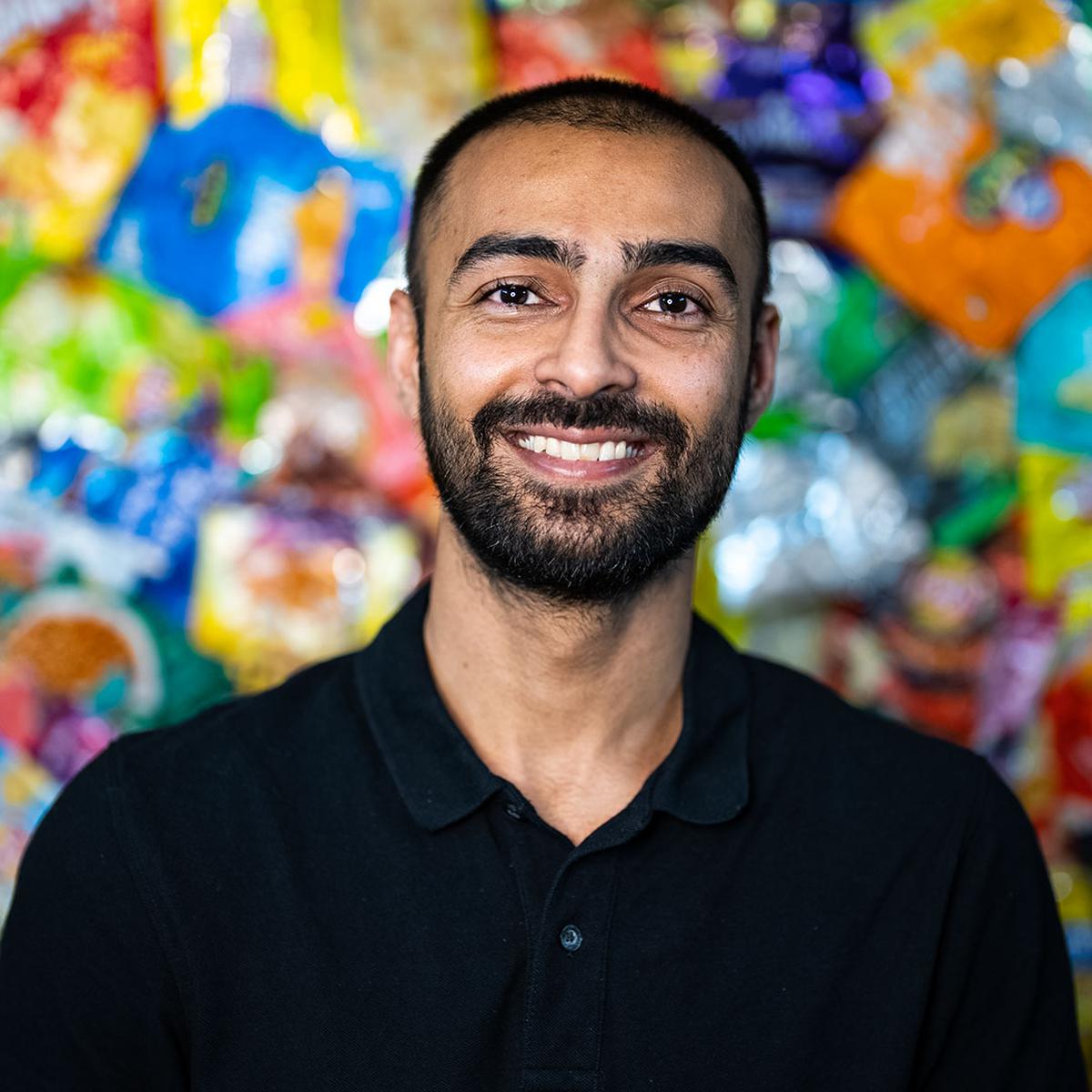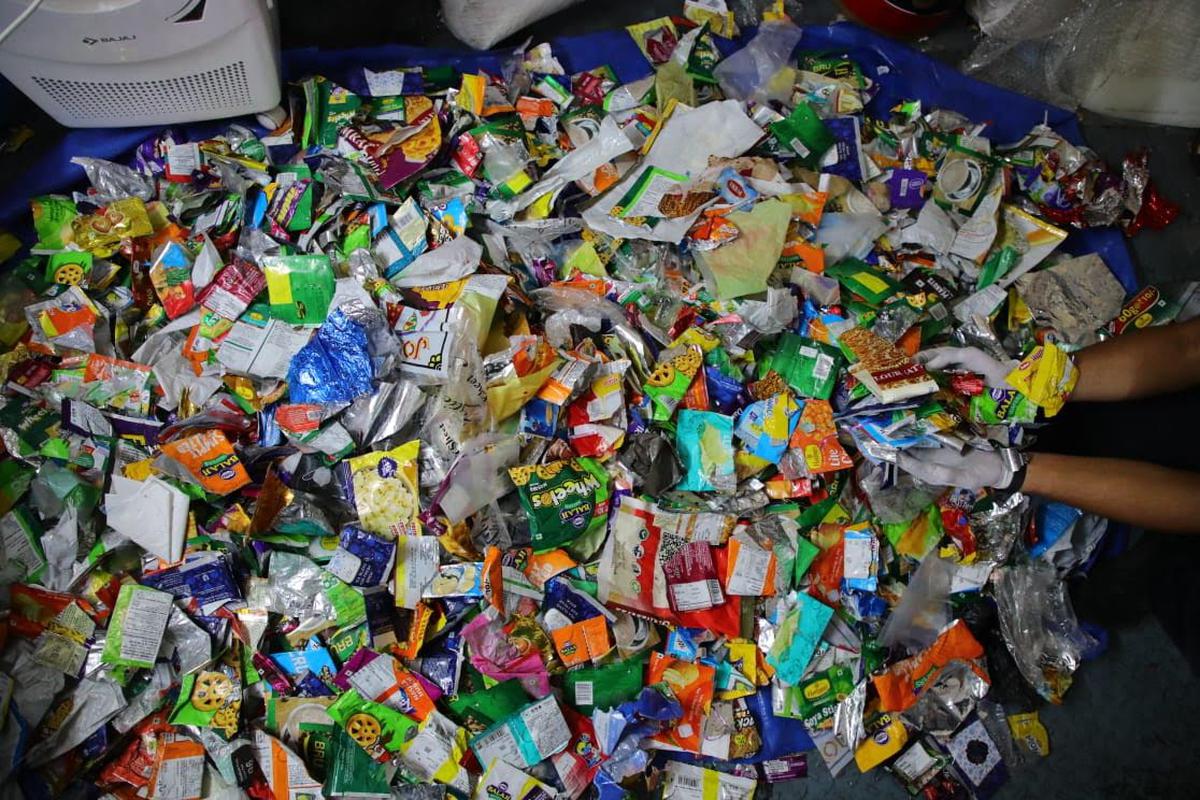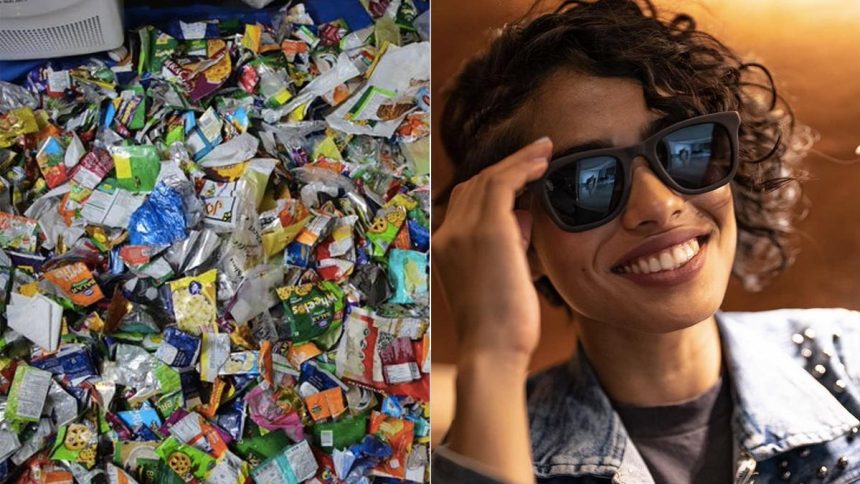When you throw away the chips packet wrapper the next time, who knows? It may wind up inside a pair of sunglasses. Surprised? Anish Malpani, who lives in Pune, was also surprised to learn of the unrealized potential that Multi-Layered Plastics (MLP) contain. Using their patent-pending technology, he has developed a method. Which ‘chemo-mechanically extract materials from this waste’ and turn them into high-quality products. The first of which is a pair of sunglasses under the brand Without. He spent the last two years experimenting in the lab of his company Ashaya to find a solution.

The team is getting ready for its June debut now that the beta program has recently concluded. The beta program’s objective was to sell 500 pairs of sunglasses in three months, but we did so in just six! In order to improve the new edition, we are using the input from the first 1,000 units sold.
The former financial professional is now an entrepreneur. Claims he went to India in 2021 to create Ashaya in an effort to address the country’s trash issue. But this came after working with Nairobi’s small businesses and charitable organizations for a while after spending 15 months in Guatemala. Upon his return, he did research on India’s waste management issue. Given that fewer than 1% of MLPs are recycled, working with MLPs looked like a logical decision.
- Advertisement -
Why MPL?
“The trouble with MLP is that it has several layers of materials like plastic, aluminum, etc. They are not only unable to be recycled but also vary according to the product. As a result, standardizing the recycling process is difficult. Our MLP recycling approach is in contrast to others. It is more concerned with material extraction than end-of-life recycling.” According to 34-year-old Anish, who obtains the plastic directly from garbage pickers. And has hired five formerly employed waste pickers on a part-time basis.

They are the only ones that collect this material, and we get about five kilograms a day. From a group of waste pickers connected to SWaCH/KKPKP that is operated by 12 to 13 women ragpickers. He discusses how his team generated a list of 400 goods and selected 70. Including items like photo frames, wallets, and pencils. For its initial release under the brand name Without, sunglasses were chosen. Before deciding on the name, we had multiple focus groups. Customers may buy our products “without’ worry” as we work to create a world without trash.

Therefore, what did he consider as he created the sunglasses’ design? A lightweight, UV-polarized unisex wayfarer that “will not break, even if bent or thrown off a building” is the end product. According to Anish, whose goal was to develop a simple, fashionable design. Because we needed to launch the beta program quickly, we were unable to create a different, funkier aesthetic. Ashaya promises that “we will have more designs that are out there.” And that “we will take aesthetics into consideration” when he releases them to the public in the upcoming months. We want something to be hip as well as environmentally friendly.
Plastic to Sunglasses product
Anish walks us through the recycling process. Explaining that the first phase is removing the MLP, washing it, and then sorting the materials using their technology. Where the plastics are dematerialized and separated. In order to create items using standard injection molding techniques, we compound them into high-quality materials. Because no one else is doing it, it’s challenging to come up with and scale up.
Anish quickly adds, “Sunglasses won’t solve the waste problem or the MLP crisis, though,” to the statement. Nevertheless, his study “proves a notion that we can take a material that is impossible to recycle can convert it into high-quality materials and products.” Once the launch is complete, his first move will be to scale up and work with all polymers and materials. Examine how distributed recycling facilities have helped garbage pickers over the long run as well.


